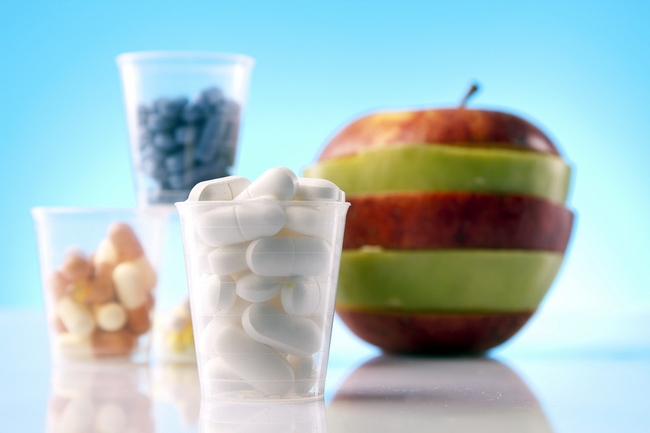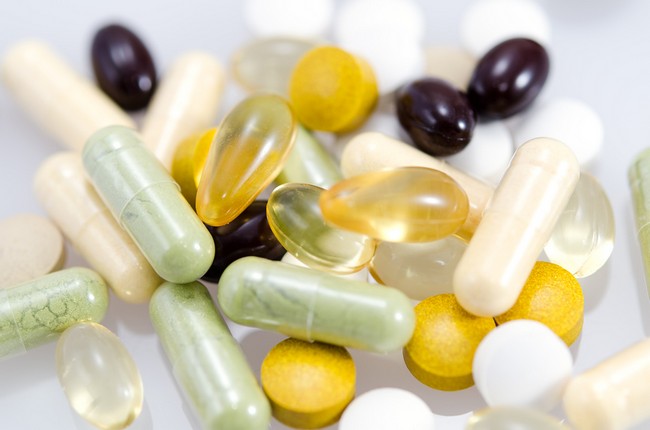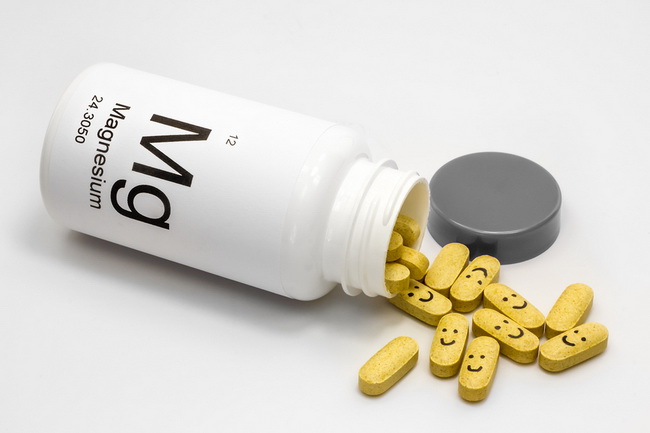- Make It Yourself Lavender Heart-Shaped Bath Bombs!
- 20 Things You Never Knew About “Down There”
- 12 Best Foods For Those Suffering From Arthritis Pain
- 12 Personal Hygiene Mistakes Almost Everyone Makes (Mom Never Told You About #4!)
- 15 Medicinal Plants And Herbs From The Cherokee People
- 12 Mind-Blowing Benefits Of Drinking Coconut Water During Pregnancy
- 12 Outstanding Winter Foods That Won’t Fatten You Up Like A Christmas Turkey
You Won’t Believe the Toxins in Your Vitamins, Supplements, and Health Foods

Photo credit: bigstock.com
No matter how healthy you try to eat, the fact is that almost everyone could use a few good supplements. Our fruits and vegetables used to be full of nutrients and minerals but due to depleted soils, our foods lack some of the important nutrients that our bodies need.
However, if you thought that your multi-vitamin or other supplement was pure and healthy, that very well might not be the case. You might be adding toxic and dangerous chemicals to your body without even knowing it.
Grab your vitamins, supplements, and protein powders and see if any of them contain the following 12 toxic chemicals that might be having a more serious effect on your health than you might think.
1. BHT and/or Sodium Benzoate
These are often seen together as they are preservatives, which doesn’t sound bad until you know that these chemicals are classified as carcinogens and can damage your DNA structure.
2. Boric Acid
Although harmless when applied topically, boric acid is added to many supplements. When ingested, boric acid can cause depression, DNA damage, birth defects, headaches, including migraines, and inflammation.
3. Sodium Selenite and Sodium Selenate
Both of these are sold on the market today as minerals, but these are synthetic minerals that have been classified as being dangerous to the environment. They are genotoxic and carcinogenic. They have been linked to reproductive as well as developmental problems in studies done with both humans and animals. It’s interesting to note that the EPA will not allow these substances in public drinking water but apparently they don’t mind you consuming them as supplements.
Continue to Page 2

Photo credit: bigstock.com
4. GMO Ingredients
Even though your supplement or protein powder might not list corn or soy on the label, they can still contain GMO compounds. Read the label and if you see your product contains any of the following:
- Lactic acid
- Vitamin C
- Amino acids
- Molasses
- Monosodium glutamate (MSG)
- Yeast products
- Hydrolyzed vegetable protein
- Sucrose
- Sodium ascorbate
- Maltodextrin
- Flavoring (natural or artificial)
Almost all of the above ingredients are derived from GMO soy or corn and none of them are good for your health. If your products contain any of the above, throw them out.
5. Hydrogenated Oils
These highly refined and processed oils are loaded with trans-fats and are highly unstable. They are known to increase the risk of nerve damage, heart disease, diabetes, and cancer to name a few. Hydrogenated oils are used as a filler and are often added to so-called health foods.
6. Heavy Metals
The strange thing about many detox products, protein shakes, and supplements is that they actually contain heavy metals, some of the very ingredients you are trying to remove from your body! You might be surprised at how many of them contain aluminum, arsenic, fluoride, and lead. Be especially careful about buying green tea, herbs, vitamins, or supplements from China as most of these have been tested and found to be contaminated with various heavy metals. Read more how to eat for a natural heavy metals detox.
Continue to Page 3

Photo credit: bigstock.com
7. Carrageenan
This is another toxic chemical that is often used as a filler in health foods and supplements. This dangerous chemical has been linked to digestive problems, leaky gut, as well as cancer.
8. Acrylamide
This well-known carcinogen occurs when food is cooked at high temperatures and when processing carbohydrates. This means you should avoid all foods that are fried. Since acrylamides are formed when foods or supplements are processed, so manufacturers aren’t required to list it on the ingredient label. Even things such as “organic” chips contain this compound.
SEE ALSO: If I am Eating Right, Do I Still Need Supplements?
9. Artificial Colors
These colors are added to many supplements and foods to make them look more appealing. Many of these synthetic colors are made from coal tar. Yes, coal tar, the same ingredient that is used in roofing tar and paint. Artificial colors have been linked in numerous studies to severe health issues such as ADHD, birth defects, autism, and cancer.
Continue to Page 4

Photo credit: bigstock.com
10. Magnesium Stearate and/or Stearic Acid
Although these sound like harsh names, they are actually lubricants used in many supplements to stop capsules from sticking together. Both of these compounds have been connected to a lowered immune system as well as various other health issues. Magnesium stearate is not a real source of magnesium; essentially, it’s chalk. Research studies have shown that magnesium stearate suppresses your body’s immune system and its white blood cells. Magnesium stearate actually forms a biofilm to form in your digestive system, which inhibits the absorption of other vitamins and minerals.
11. Inorganic Compounds
If you think about it, inorganic compounds can be just about anything from sawdust to plastic. Almost all of those cheap vitamins from China contain barium, lead, or iron. Much better to get your minerals from plants rather than crushed rocks or seashells.
12. Hexane-Extracted Rice and Soy Protein
Read your protein powder label. If your product is made in china, almost all soy and rice proteins are extracted with a dangerous chemical called hexane. This explosive chemical causes tons of pollution and is not good for your health. Read labels carefully and always buy organic certified. Don’t be fooled by the words “natural” as it means next to nothing, especially when talking about products made in other countries with little or no standards.
To avoid some of these pitfalls, read labels very carefully. Look for vitamins or mineral supplements and protein powders that stay as close as possible to their natural, whole food form. Look for companies that have long histories of providing high quality products. If you can find a company that states that they follow industry standards and have a certification by GMP (Good Manufacturing Processes). Also, check with consumer watchdog groups that test supplements and provide reports with vital information such as Consumer Reports.
Vitamins, minerals, supplements, and protein powders can really help to compensate for some of the damage that our bodies endure through our modern lifestyle, however, they will not make up for a poor diet or unhealthy lifestyle. There is simply no amount of supplements, no matter how high quality they might be, that will make up for a junk food diet. Whole, natural, organic foods are far, far better for your health than any multivitamin will ever be.
References:
































